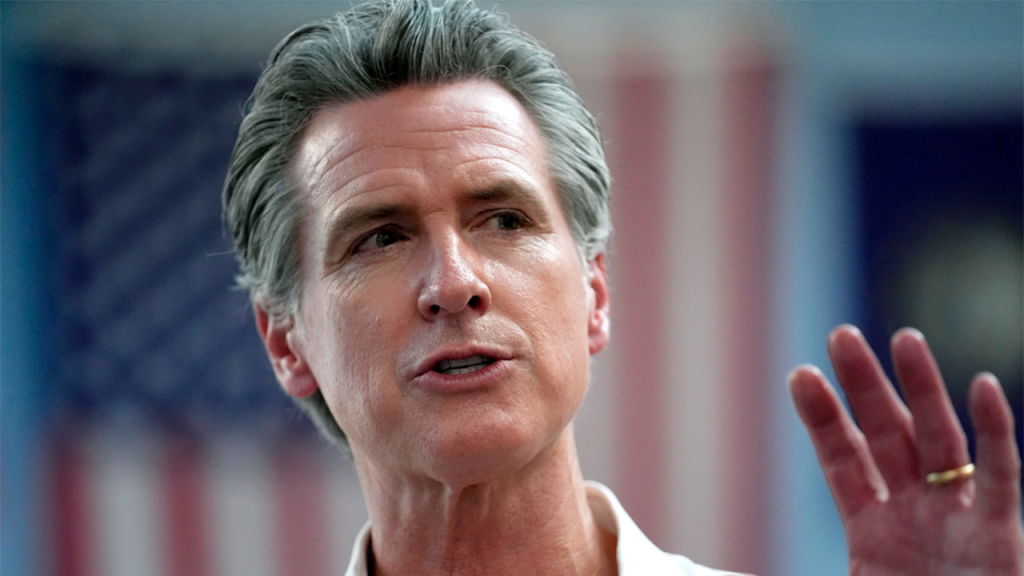California Gov. Gavin Newsom recently signed a bill that reinstates tough criminal penalties for large-scale theft schemes and smash-and-grab robberies in the state. The new law requires prosecutors to impose harsher sentences on those who cause damage or destruction to property valued at over $50,000 while committing a felony. This legislation comes as California already has some of the strictest retail and property crime laws in the nation, and it is aimed at addressing the frustration of voters across the state. The law will be in effect until 2030.
Democratic lawmakers in California are working to demonstrate their toughness on crime, as evidenced by Newsom’s decision to bring back tough penalties for theft crimes. The state has been facing a growing issue with shoplifting and a crisis with large-scale smash-and-grab thefts conducted by organized groups. These incidents have garnered attention due to being caught on video and shared on social media. Newsom’s new law is part of a legislative package focused on cracking down on thefts, making it easier to prosecute repeat offenders and increasing penalties for those running professional reselling schemes.
The bipartisan legislative package that Newsom’s new law is a part of includes about a dozen bills aimed at addressing theft crimes. The bills also aim to increase penalties for repeat shoplifters and auto thieves, while making it easier for prosecutors to target organized retail crime. California Assembly Speaker Robert Rivas, who authored the bill, stressed the urgent need to stop violent “sledgehammer crimes” and flash-mob attacks by organized gangs. The California Retailers Association supports the measure, viewing the new penalties as a deterrent against smash-and-grab and retail crime.
However, the new legislation has faced opposition from public defenders and criminal justice advocates who argue that it will result in more individuals being imprisoned for non-retail theft crimes. Critics of the bill have expressed concerns that prison time could increase for a wide range of felony charges, such as for individuals who damage vehicles while driving under the influence. Additionally, opponents believe that the new law is reminiscent of a proposed tougher-on-crime ballot initiative that Newsom and Democratic legislators previously criticized but ultimately failed to keep off the ballot.
Newsom’s administration has allocated $267 million to assist local law enforcement agencies in increasing patrols, purchasing surveillance equipment, and prosecuting criminals. Law enforcement efforts in the state have resulted in the arrest of 6,900 individuals for retail theft crimes in the first six months of the operation. The governor’s office has emphasized the importance of cracking down on thefts and ensuring the safety of businesses and workers. Ultimately, Newsom hopes that the newly reinstated tough penalties will serve as a deterrent and contribute to reducing theft-related crimes in California.













